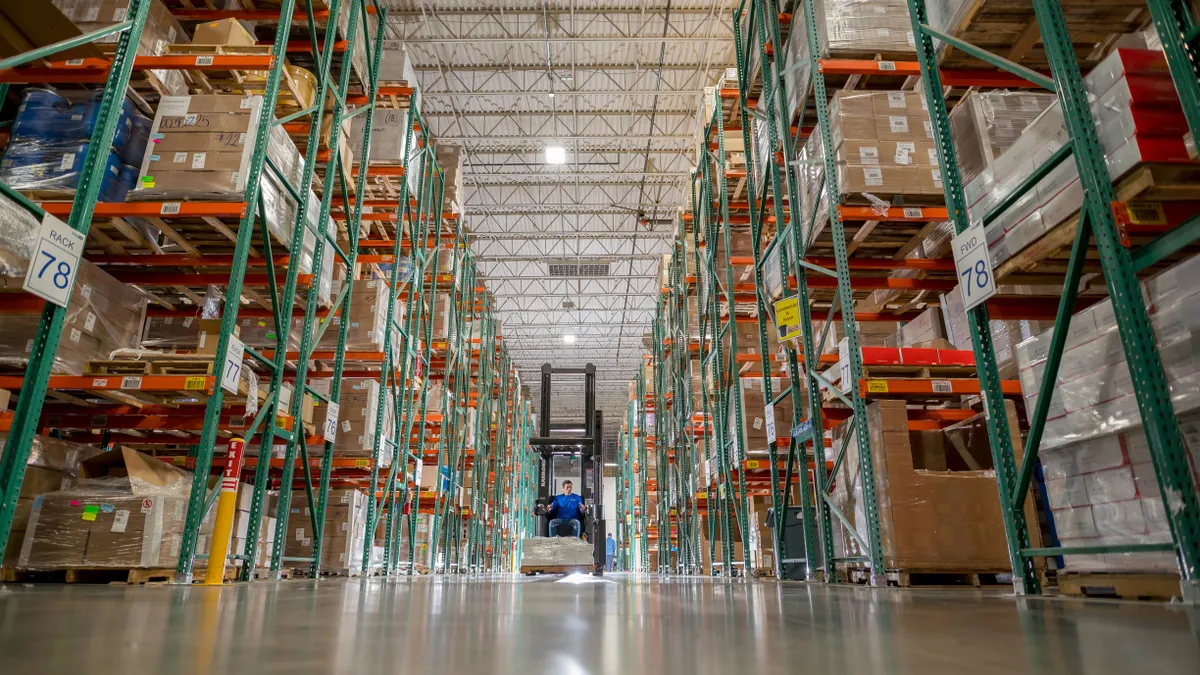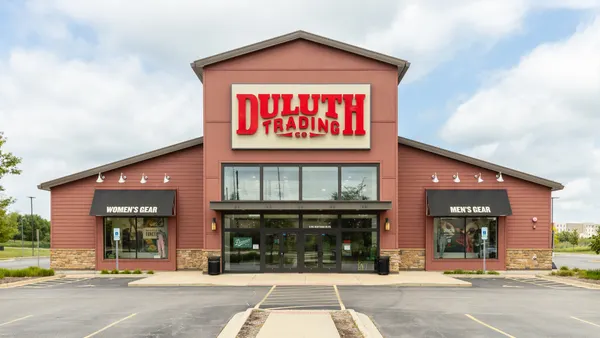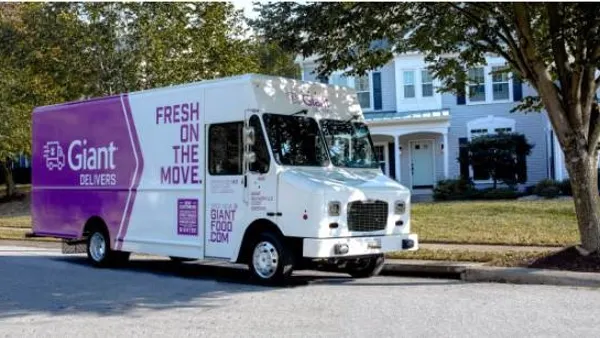When Maersk announced the acquisition of Visible Supply Chain Management earlier this month, it highlighted how the assets would help it to grow its e-commerce fulfillment footprint.
"While our customers trust us with a wide part of their supply chain, this acquisition will contribute to an even better end-to-end experience by providing more key E-commerce capabilities," Vincent Clerc, CEO of ocean and logistics at Maersk, said in a statement announcing the deal.
And Narin Phol, the managing director of Maersk North America, said that VSCM's nine warehouse locations will provide Maersk a footprint in parts of the U.S. where it did not previously have fulfillment infrastructure.
Acquisition provides expanded warehouse footprint
Maersk's existing U.S. footprint was very centered around water-gateways in Los Angeles; Chesapeake, Virginia; and around the New York region.
"We are in the [places] they are not in," Phol said. "We come from a port-centric [network]."
VSCM's locations in parts of the country like Georgia, Utah and Memphis will help Maersk to build up its e-commerce fulfillment network and scale up two-day shipping. "And then eventually move towards one day," he said.
Warehousing services are in high demand as companies look for more space to store their e-commerce inventory, according to commercial real estate firms.
"The recent pandemic has accelerated the growth of eCommerce as well as the demand for industrial real estate in virtually every major market in the U.S. as companies work to get closer to their customers," Rich Thompson, international director of supply chain and logistics solutions at JLL, said in an email.
And VSCM's network will put Maersk into some of the hottest warehousing markets.
Atlanta is the market with the most industrial real estate under construction and had the second-highest net absorption rate in Q2. Salt Lake City has the fifth-highest growth rate and Memphis ranked tenth for the amount of construction, according to CBRE.
"Increased e-commerce demand and the need for safety stock to counter supply chain disruptions will further push up asking rents and keep vacancy rates near record lows despite a large amount of new development this year," CBRE said in its Q2 update.
Maersk's publicly stated goal is to move beyond the world of ocean shipping and offer end-to-end supply chain services. And e-commerce plays an important role in making that happen.
"The transition to omnichannel is not only about warehousing, distribution and last mile," Clerc said on the company's most recent earnings call. "It has significant upstream implications as well, impacting sourcing decisions, size of purchase order, mode of transport and delivery needs."
Maersk already talks to its customers in its ocean business on a regular basis. It knows what services they need when they get to land, Phol said. Now with the addition of VSCM they have nine e-commerce fulfillment centers to offer in addition to the e-commerce infrastructure that came with the 2020 acquisition of Performance Team.
"So a lot of the synergy case is about us bringing on board a lot of the customers that we have on Ocean with whom we have some discussions around e-commerce and where we didn’t have the capabilities before these two acquisitions," Clerc said, referring to the VSCM and B2C Europe deals that were announced the same day.
VSCM's current network is going to run as-is through the end of the year so as to not disrupt anything for the upcoming peak season. And the fulfillment centers will begin to be more integrated into the broader Maersk network starting next year, Phol said.
This could allow a Maersk customer that currently only operates out of one warehouse to look at expanding into one of these new locations in an effort to provide faster deliveries. VSCM does not own any delivery assets, but has developed a "very superior IT solution" for managing its multiple carriers including USPS, FedEx and UPS, he said.
Moving forward, Phol said that there are still gaps that Maersk is interested in filling in its North American offerings, including domestic transportation for LTL and FTL, and a cold chain offering.
"So we will continue to to see how do we strengthen a lot of these capabilities," he said.















